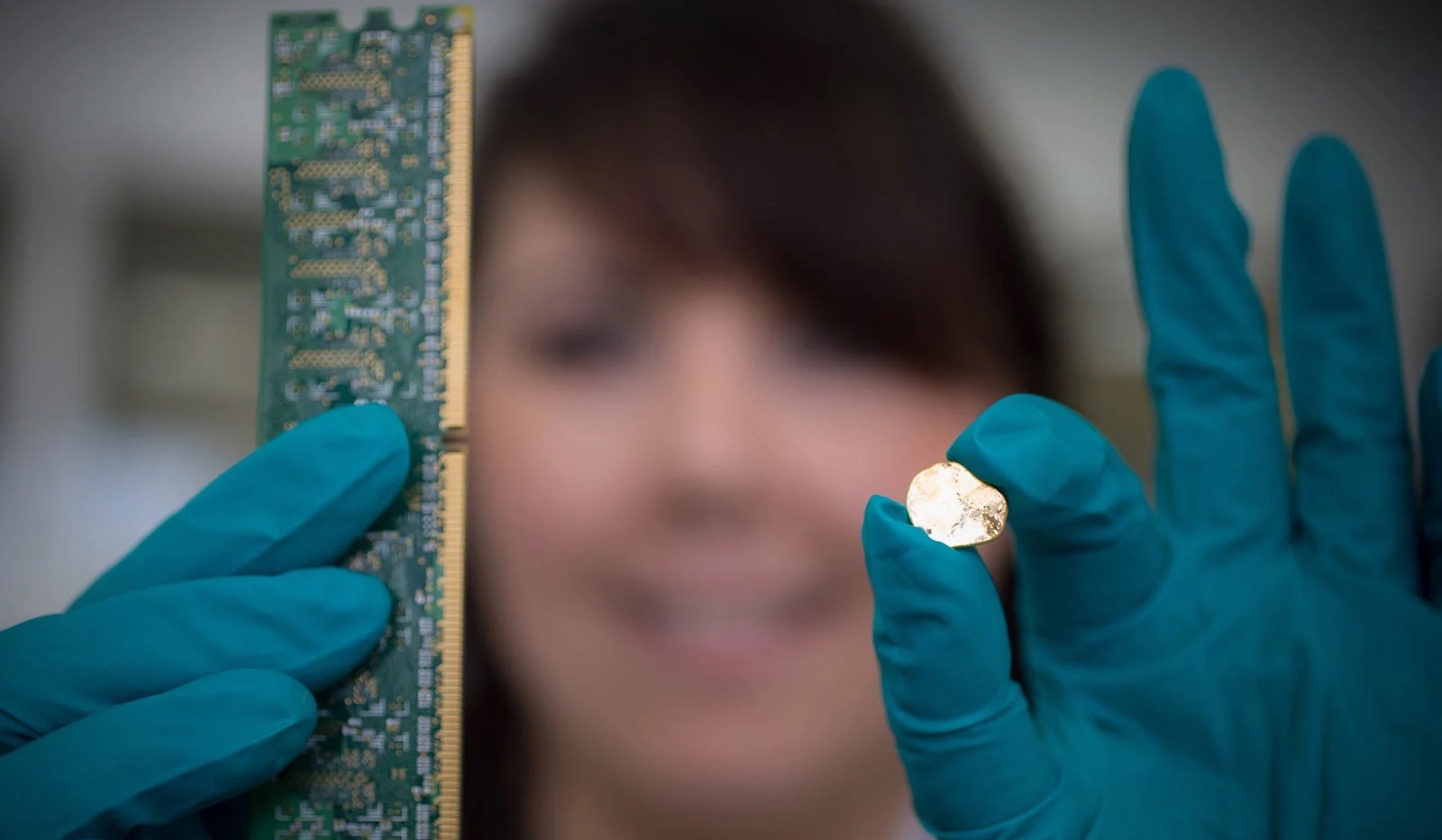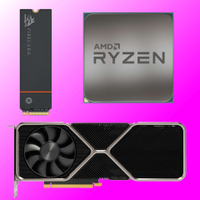UK Royal Mint's 'urban mining' extracts more gold from old motherboards and other junk than you might think
But read on before you go melting down your PC...

The UK's Royal Mint, best known for cranking out the country's coinage, has a new gig. It's now extracting gold from e-waste. The company has built a new industrial site to "mine" gold from discarded electronics. The Royal Mint says the gold will initially be used to make jewellery and eventually will go into commemorative coins (via the BBC).
Of course, the big question is exactly how much gold there is in your old motherboards, toaster circuits and TVs. The Royal Mint reckons it can salvage 450kg from 4,000 tons of e-waste.
At current prices, that works out very roughly to a value of $35 million. So, you can see why the Royal Mint is giving it a go.
It also translates into roughly one part per 8,000 of gold in e-waste. Which is quite a lot when you think about it. It's certainly a lot of gold to chuck out when you consider the huge amounts of e-waste produced globally every year.
Most estimates put that at around 50 million tons. The Royal Mint no doubt specifically selects e-waste with relatively high gold content. So, that 50 million tons annually very likely doesn't imply 6,250 tons of gold in e-waste as per the Royal Mint's recovery rate. Global annual gold production is only half of that figure.
But it still makes you think how much gold is just being sent to landfills or sitting around in junk yards.
Of course, recovering the gold isn't straightforward. Traditionally, extracting gold from e-waste has represented a dubious environmental trade-off. But the Royal Mint claims to have largely squared that particular circle.
Keep up to date with the most important stories and the best deals, as picked by the PC Gamer team.
"Traditional gold recovery processes are very energy intensive and use very toxic chemicals that can only be used once, or they go to high energy smelters and they're basically burnt,” says Leighton John, the Royal Mint's operations director.
“The groundbreaking thing for us is the fact that this chemistry is used at room temperature, at very low energy, it’s recyclable and pulls gold really quickly,” he says.
Put frankly, all this also gives the Royal Mint something to do, what with cash usage dwindling fast in an age of ubiquitous digital and contactless payment systems. We just don't need nearly as many coins as we used to.
In future, the Royal Mint says it is considering whether it's worth recovering other metals including aluminium, copper, tin and steel. It is also, apparently, looking into the prospect of turning ground-up motherboards into a building material.
In the here and now, it's intriguing to ponder just how much gold there is in your PC. A bit more than you might think, but might we suggest you're probably still better off booting up some Baldur's Gate 3 than smelting it down for cold, hard cash.
Best CPU for gaming: Top chips from Intel and AMD.
Best gaming motherboard: The right boards.
Best graphics card: Your perfect pixel-pusher awaits.
Best SSD for gaming: Get into the game first.

Jeremy has been writing about technology and PCs since the 90nm Netburst era (Google it!) and enjoys nothing more than a serious dissertation on the finer points of monitor input lag and overshoot followed by a forensic examination of advanced lithography. Or maybe he just likes machines that go “ping!” He also has a thing for tennis and cars.


